Samie Modak in Mumbai
Leap years, which come with an extra trading day, have not brought any additional buck for the market.
An analysis of annual returns of Sensex since its inception in 1979 show that leap years are, in fact, characterised by subdued returns for the benchmark.
The average returns delivered by the benchmark Sensex during the past eight leap years is just 7.4 per cent.
On most occasions, the market return during a leap year has been less than the average return of the previous three non-leap years.
...
2012: This leap year may not be good for Sensex
Image: The only exception has been 1988, when the index gained by 50 per cent.Photographs: Reuters.
The only exception has been 1988, when the index gained by 50 per cent. If this trend continues, the market returns for the year 2012 could be capped at 25 per cent, the average returns for the previous three years.
Incidentally, the previous leap year -- 2008 -- was the worst-ever year in the history of Indian equity markets, as it lost more than half of its value triggered by the global financial crisis.
The collapse of Lehman brothers and the controversy surrounding Satyam Computers acquisition of Maytas which eventually led to the biggest corporate scam in India left indelible marks on investors' psyche.
...
2012: This leap year may not be good for Sensex
Image: In 2000, investors lost 20 per cent.Photographs: Reuters.
In 2000, investors lost 20 per cent when the dot-com bust in the US, led to a global meltdown. Similarly, 1992 was another big loss year for investors, when the Harshad Mehta scam shook the industry.
Though it ended the year with gains, investors booked substantial losses since the index crashed 42 per cent from peak levels.
The best leap year for the Sensex has been 1988, when it gained 51 per cent. During 1988, the market has rebounded sharply on a very low base.
...
2012: This leap year may not be good for Sensex
Image: Market has delivered negative returns in the past three out of four leap years.Photographs: Reuters.
The market has delivered negative returns in the past three out of four leap years. Year 2004 was largely an eventless year; even then, investors gained 13 per cent.
In 2003 and 2005, they gained much higher - at 73 per cent and 42 per cent, respectively.
However, after a tumultuous 2011, where the market lost a quarter of its value, most experts are hoping that 2012 will be a lot better than its preceding year.
...
2012: This leap year may not be good for Sensex
Image: A fragile global situation took a toll on the market performance in 2011.Photographs: Reuters.
Piyush Garg, executive VP and CIO of ICICI Securities, says the course of 2012 can see the macro changing for the good with inflation and interest rates coming down "although there is nothing to be positive to start with".
Also, the government will push for reforms in the run-up to the assembly elections, he adds.
While a worsening macro, in terms of spiralling inflation, high interest rates, slower growth, policy inaction and a fragile global situation took a toll on the market performance in 2011.
...
2012: This leap year may not be good for Sensex
Image: Investors react looking at the Sensex ticker.Photographs: Reuters.
Brokerages and market experts are pinning hopes on these factors to reverse for a revival in the stock market.
Deven Choksey, MD of KR Choksey Securities, predicts this year will be "definitely better" than 2011, as the government has started to get its act together.
"It will be a year of turnaround, as the central bank will start to cut interest rates as inflation starts to cool off," he notes. "However, the only negative will be lack of clarity on what happens on the currency front."
...
2012: This leap year may not be good for Sensex
Image: Liquidity will be a major factor.Photographs: Reuters.
Also, liquidity will be a major factor in determining market direction.
After investing a record $29 billion in 2010, foreign institutional investors pulled out over $500 million in 2011.
"Some momentum could be liquidity play also," notes Garg. "If the market has to rally sharply, liquidity has to start pouring in liquid assets."

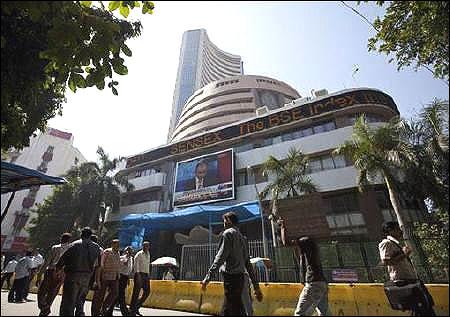
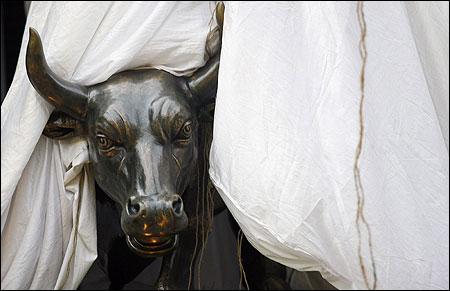
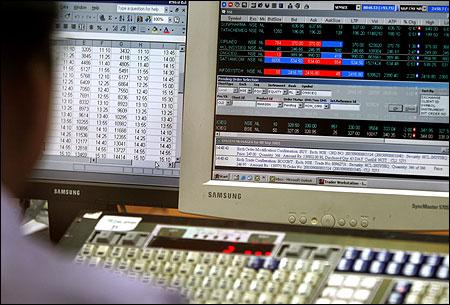
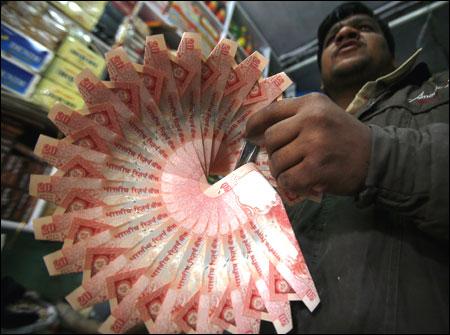
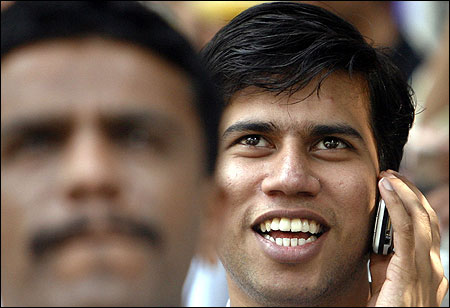
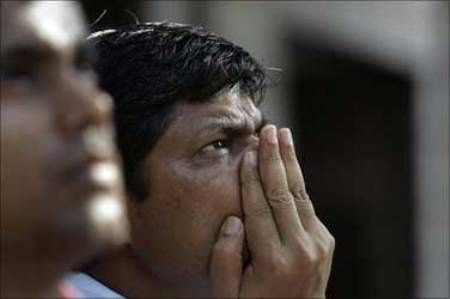
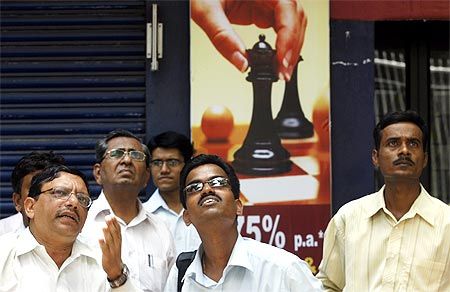

article